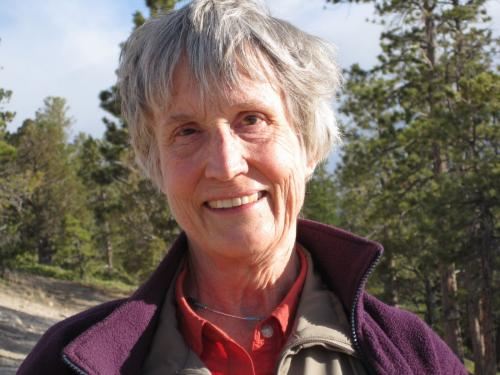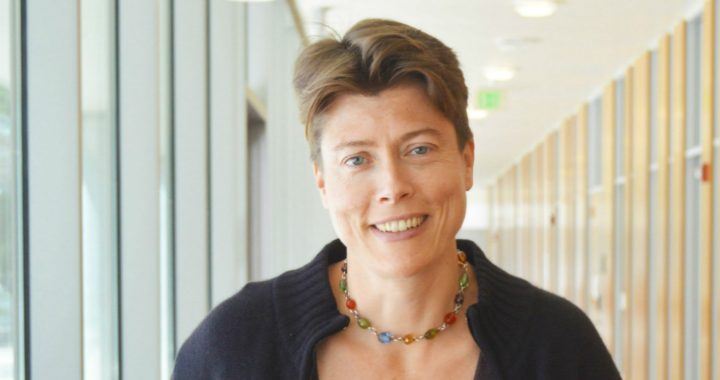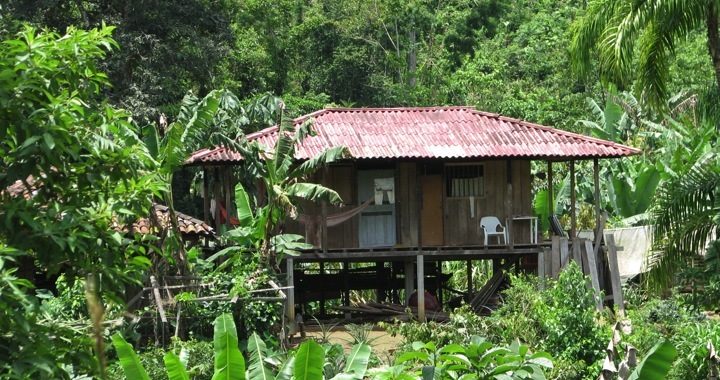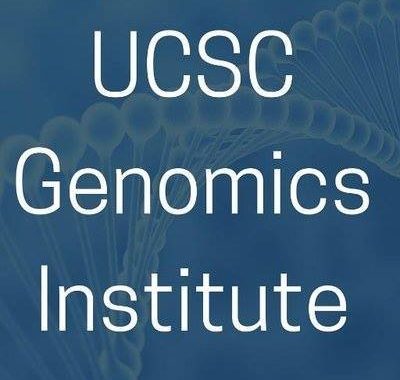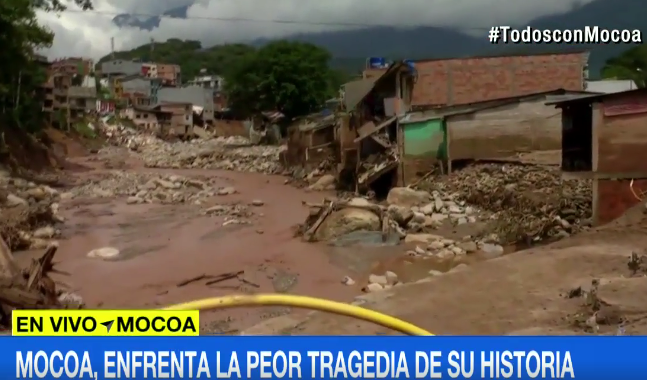Recently, on October 23 and 27 2017, Science & Justice Research Center colleague and UC Santa Cruz Professor Emerita (History of Consciousness) Donna Haraway gave two lectures, one at Yale University and one at Duke University. Both lectures were titled “Making Oddkin: Telling Stories for Earthly Survival” and explored the possibilities of the intersection of science, art, and activism, as well as the responsibilities of living in the Cthulhucene, including the decolonization of contact zones. Yale University, from which Haraway received her PhD in biology, also awarded her the Wilbur L. Cross medal for Distinguished Graduate School Alumni, one of Yale’s highest honors. You can now see both lectures on YouTube (follow these links to watch October 23 talk at Yale University and the October 26 talk at Duke University). You can read about her honor and the events surrounding her trip to Yale’s Women’s, Gender, and Sexuality Studies (WGSS) department here.
News
Hear SJRC Director Jenny Reardon on Radio Australia
Radio Australia recently aired an episode of its Big Ideas program featuring a talk by SJRC Director Jenny Reardon. The episode highlighted her research on genomics and justice, as well as her forthcoming book from the University of Chicago Press, The Postgenomic Condition: Ethics, Justice, and Knowledge After the Genome. Reardon specifically discussed the ways in which, despite the hype and real advances of genomic science in recent decades, genomics also has produced a pervasive “dis-ease” that must be addressed through a turn to justice as a guiding principle if the hope for a genomics that serves public values is to be realized. You can listen to the entire episode via Radio Australia’s website here and see Professor Reardon discuss her book in person on November 29 at UC Santa Cruz.
Science and Justice Courses offered Winter 2018
UC Santa Cruz offers a wide range of courses across its many disciplines whose curriculum questions the relationships between science, society and justice. The below list of courses (undergraduate and graduate, face to face and online) are taught across all five academic divisions. To add your course: email us at scijust[at]ucsc.edu
Undergraduate Courses
Anth 136 The Biology of Everyday Life: Addresses cross-cultural attitudes to the human body and its everyday biological concerns: sleeping, eating, breathing, sex, and defecation. Prerequisite(s): course 2. Instructor Nancy Chen; Time: MWF 10:40-11:45AM
ANTH 110E Anthropology of Global Environmental Change: Introduces anthropological and historical approaches to environmental change and globalization. Key themes include: capitalism and industrialization, environmental politics, global culture, and relations between humans and other species. Instructor: Jerry Zee; Time: MW 05:20PM – 06:55PM
ANTH 110W Land and Waterscapes Entropology: Establishes anthropological interconnections of emergent worlds where environmental matters, social justice, and human survival interrelate. Focuses on anti-essential nature and waterscape ethnographies in which different pluricultures revalidate local understandings as ways of contesting increasing forms of land and water privatization. Instructor: Guillermo Delgado; Time: TuTh 05:20PM – 06:55PM
ANTH 196W-01 Anthropology of Weather and Exposure: Students discuss how differing approaches to weather and exposure generate different approaches to culture, science, and politics; identify key moments in cultural anthropology’s engagement with environmental and climactic questions; and delineate new areas of research. Instructor: Jerry Zee; Tu 10:00AM-01:00PM
FMST 30 Feminism and Science: Explores questions of science and justice. Examines the nature of scientific practice, the culture of science, and the possibilities for the responsible practice of science. Rather than focusing on feminist critiques of science, the course examines how science and technology are changing our world and the workings of power. (Formerly course 80K.) Enrollment limited to 80. (General Education Code(s): PE-T.) Instructor: Karen Barad; Time: Tuesday/Thursday 1:30-3:05PM
FMST 131 The Politics of Matter and the Matter of Politics: Considers how “things”–what we may think of as objects, matter, nature, technology, bodies–are constitutive elements of social and political life. What happens to the political as a category if we take this matter seriously? Prerequisite(s): course 1. Instructor: Kristina Lyons; Time: Tuesday/Thursday 1:30-3:05PM
FMST 194L Decoloniality, Feminism, and Science Studies: Introduces decolonial perspectives and considers how science studies might be radically transformed through an engagement with decolonial, indigenous, and black feminist perspectives, and scholars from the global South. Prerequisite(s): satisfaction of the Entry Level Writing and Composition requirements; courses 1 and 100. Enrollment is restricted to juniors and seniors. Enrollment limited to 20. Instructor: Kristina Lyons; Time: Tuesdays 5:00-8:30PM
HIS 151 – 01 History of Science, Medicine, and Technology from Antiquity to the Enlightenment: Questions explored include the debate over when/where “modern science” began; the role of craft-based and artisanal skills in the production of knowledge; and the technological and social impacts of intellectual change, from the Bronze Age to the birth of computing. (General Education Code(s): SI.) Instructor: B. Breen; Time: Tuesday/Thursday 9:50-11:25AM
Oakes 153 Community Mapping: Students study the theories and methods of community mapping, and work in research teams to design and conduct social-research projects. Emphasizes research questions that focus on assets and capacities, as well as on participatory-action research for justice. Prerequisite(s):satisfaction of Entry Level Writing and Composition requirements. Enrollment restricted to Oakes College members and community studies majors. Enrollment limited to 25. May be repeated for credit. (General Education Code(s): PR-S.) L. Lopez; MW 1:20-3:20PM
SOCY 132. Sociology of Science and Technology: Reviews social and cultural perspectives on science and technology, including functionalist, Marxist, Kuhnian, social constructionist, ethnographic, interactionist, anthropological, historical, feminist, and cultural studies perspectives. Topics include sociology of knowledge, science as a social problem, lab studies, representations, practice, controversies, and biomedical knowledge and work. Enrollment is restricted to junior and senior majors and minors in sociology, biology, biochemistry, critical race and ethnic studies, global information and social enterprise, and Latin American studies/sociology combined. Enrollment limited to 20. J. Doucet-Battle; TuTh 09:50 – 11:25AM
Graduate Courses
FMST 214 Topics in Feminist Science Studies: Graduate seminar on feminist science studies. Topics will vary and may include: the joint consideration of science studies and poststructuralist theory; the relationship between discursive practices and material phenomena; and the relationship between ontology, epistemology, and ethics. Enrollment restricted to graduate students. Enrollment limited to 15. K. Barad or other.
- Topic: This course centers feminist materialist debates in Native concepts of science, matter, land, timespace, spirit/sacred, and relationality with the nonhuman. We look to a variety of indigenous and decolonial thinkers who have long lived, envisioned, practiced and theorized related ontologies with land, animal, and spirited forces to see, know, and be “otherwise.” We re-evaluate what counts as scientific evidence/the empirical and question the norms and occlusions of the field of feminist materialism through debates with a range of indigenous and allied scholars within and at the margins of native studies, decolonial studies, and Feminist Science & Technology Studies. We tackle the following questions: What critical visions, claims to knowledge, being, and sovereignty open up when we take seriously indigenous worldviews? How might we think about science as a place-based, embodied, and lived practice that is as much local as it is cosmological? What new ways of thinking the universal, time, and space become possible? We consider alternatives to capitalist development, empire, sovereignty, as well as life/death by shifting the focus to a range of indigenous perspectives. Instructor: Felicity Amaya Schaeffer; Time: Mondays 10-1pm
Offered Spring 2018
Undergraduate Courses
ANTH 106 Primate Behavior and Ecology: The nature of primate social systems and social bonds is examined in the light of evolutionary and ecological concepts. Students cannot receive credit for this course and course 206. Prerequisite(s): course 1. V. Oelze
ANTH 110U Anthropology of Science: Examines science and technology through an anthropological lens, focusing on ethnographic studies of scientific practice and relations between science and society. We will look at studies theorizing core scientific elements, and focus on qualitative, empirically-based studies of scientific practice.
ANTH 134 Medical Anthropology – An Introduction: Cross-cultural study of health, disease, and illness behavior from ecological and ethnomedical perspectives. Implications for biomedical health care policy.
ANTH 146 Anthropology and the Environment: Examines recent approaches to study of nature and the environment. Considers historical relationship between nature, science, and colonial expansion as well as key issues of contemporary environmental concern: conservation, environmental justice, and social movements.
ANTH 190X Special topics in Biological Anthropology: Taught annually on a rotating basis by various faculty members. Precise focus of each year’s course varies according to the instructor and is announced by the department. (Formerly Special topics in Archaeology-Physical Anthropology.) Prerequisite(s): course 1. May be repeated for credit. The Staff
Topic (Neanderthals): This course will use primary academic research to explore the social behaviors, technology, anatomy, and genetics of neanderthals and in the end, we will gain a more holistic understanding of exactly who neanderthals were.
ART 80B Environmental Art: Examines ways artists engage, interact, and comment upon ecology and nature in their artworks by examining environmental art from the 1960s through the present. (General Education Code(s): PE-E.) Instructor: Elizabeth Stephens, *Students from other disciplines are encouraged to enroll
ART 125 Environmental Art Studio: Introduces students to environmental art and design through basic concepts, techniques, and studio practice. Students are billed for a materials fee. Prerequisite(s): Three courses from: Art 15, 20G, 20H, 20I, 20J, 20K, 26, and Computational Media 25 Enrollment restricted to art majors. May be repeated for credit. Instructor: Elizabeth Stephens, The Staff
FMST 133 Science and the Body: Contemporary technoscientific practices, such as nano-, info-, and biotechnologies, are rapidly reworking what it means to be human. Course examines how both our understanding of the human and the very nature of the human are constituted through technoscientific practices. Prerequisite(s): courses 1 and 100. Enrollment restricted to juniors and seniors. (General Education Code(s): PE-T.) Instructor: Karen Barad
LIT 80K Topics in Medical Humanities: Medical Humanities designate an interdisciplinary field of humanities (literature, philosophy, ethics, history, and religion) concerned with application to medical education and practice. The humanities provide insight into the human condition, suffering, personhood, and our responsibility to each other; and offer a historical perspective on medical practice. (General Education Code(s): PE-T.) Instructor: W. Godzich
Graduate Courses
FMST 214 Topics in Feminist Science Studies: Graduate seminar on feminist science studies. Topics will vary and may include: the joint consideration of science studies and poststructuralist theory; the relationship between discursive practices and material phenomena; and the relationship between ontology, epistemology, and ethics. Enrollment restricted to graduate students. Enrollment limited to 15. Instructor: Karen Barad
SOCY 268A Science and Justice: Experiments in Collaboration: Considers the practical and epistemological necessity of collaborative research in the development of new sciences and technologies that are attentive to questions of ethics and justice. Enrollment by permission of instructor. Enrollment restricted to graduate students. (Also offered as Biomolecular Engineering 268A and Feminist Studies 268A and Anthropology 267A. Students cannot receive credit for both courses.) Enrollment limited to 15. Instructor: Kristina Lyons
Offered Summer 2018
Undergraduate Courses
LIT 61U Introduction to Speculative Fiction: Close reading of speculative and science fiction texts (short stories, novels, and films) with the aim of developing critical methods for the analysis and interpretation of SF as a critique of science, technology, and culture. Course will explore themes like encounters across species; novelty and change; expanded concepts of life; and the role of technology in human development. (General Education Codes: PE-T). Offered during summer session as online. Z. Zimmer
Engagements with Decolonization and Decoloniality in and at the Interfaces of STS | Lyons | Catalyst: Feminism, Theory, Technoscience
In a double issue of Catalyst, curated and introduced by S&J Professor Kristina Lyons with Juno Salazar Parreñas and Noah Tamarin, is a critical perspectives piece on decolonization, decoloniality and STS.
“Engagements with Decolonization and Decoloniality in and at the Interfaces of STS” includes wonderful contributions by the following scholars.
Lesley Green on “Thinking Decoloniality with Perlemoen”
Kristina Marie Lyons on “On the Situated Politics of Analytic Symmetry”
Tania Pérez-Bustos on “A Word of Caution toward Homogenous Appropriations of Decolonial Thinking In STS”
Juno Salazar Parreñas on “Orangutan Rehabilitation as an Experimental Project of Decolonization”
Banu Subramaniam on “Recolonizing India: Troubling the Anticolonial, Decolonial, Postcolonial”
Noah Tamarin on “Genetic Ancestry and Decolonizing Possibilities”
Call for Undergraduate Individual Study (2017-2018)
The SJRC will host up to 4 Individual Study students to collaborate on research papers and proposals as well as Center events and programming for the academic year. Students can also work on senior thesis projects related to Center Themes (Genomics, Data Justice, Climate Justice) and/or assist SJRC Graduate Training Program Fellows in planning and organizing events. The Individual Study course, can range from 2-5 units, be independent or group and will include directed readings, guided independent and collaborative research and project planning.
Interested in the Intersections of Science and Justice?
Want to Develop Collaborative Research or Public Events?
Available Fall 2017
Telling the Story of Science & Justice: Individual Study with SJRC
SJRC regularly documents our events in written form, and writes digests of events for non-academic audiences. This student would assist documenting Science & Justice events, taking detailed notes during the events, recording brief interviews conducted with guests and participants, and producing creative short pieces that publicize the Center and demonstrate the importance of our mission. The student will develop a portfolio demonstrating their ability to produce short, engaging videos and web content that publicize and further an organization’s mission.
Please contact Kate Darling kdarling@ucsc.edu by October 17th.
Find ways undergraduates can get involved in Science and Justice research. Apply no later than the Monday of Week 1 and email a writing sample to scijust@ucsc.edu.
Society for Cultural Anthropology Honors S&J’s Kristina Lyons and Anna Tsing
The Society for Cultural Anthropology has awarded UCSC Assistant Professor and S&J Steering Committee member Kristina Lyons (Feminist Science Studies) the 2017 Cultural Horizons Prize for her article “Decomposition as Life Politics: Soils, Selva, and Small Farmers under the Gun of the U.S.–Colombia War on Drugs,” which appeared in Cultural Anthropology 31, no. 1 (2016): 56–81.
Stating, “This is not an ethnographic enterprise in which the objects of inquiry are slotted into narrow disciplinary agendas, but rather an exercise in accounting for and responding to when the material suggests, even demands, theoretical jumps.”
Find more information on Lyons’ community call to action to bring relief aid for Mocoa following the devastating natural disasters earlier this year.
Receiving honorable mention was UCSC Professor Anna Tsing (Anthropology) along with UCSC graduate student Isabelle Carbonell (Film & Digital Media), Joelle Chevrier (Land Dyke Feminist Family Farm) and Yen-Ling Tsai (National Chiao Tung University) for their article “Golden Snail Opera: The More-than-Human Performance of Friendly Farming on Taiwan’s Lanyang Plain,” which appeared in Cultural Anthropology 31, no. 4 (2016): 520–44.
Find the full award announcement at 2017 Cultural Horizons Prize.
UCSC Genomics Institute: We Stand for Equality
In response to actions taken in Charlottesville, VA over the last week, the UCSC Genomics Institute together with SJRC has issued a statement standing up for equality.
See also, the below Call for Action first issued following the 2016 U.S. Presidential Election.
Read and Sign: a message from the UCSC community reaffirming our shared values
#UCSCvalues
Call for Action: Community Relief Aid for Putumayo, Mocoa
From Kristina Lyons, SJRC Affiliate in Feminist Science Studies:
The capital city of Putumayo, Mocoa, where I have been engaged in research and accompanying agro-life popular processes since 2004, suffered a devastating avalanche in the early morning hours after three rivers, the Mocoa, Mulato and Sancoyaco, flooded and overtook 17 neighborhoods. At least 236 people have been killed, more than 250 more are disappeared, and hundreds are wounded and left homeless. The hospital collapsed, the bus terminal, central gas station, and market were obliterated, and there is no electricity, potable water, or most public services. I am lucky that my closest friends, colleagues, compañerxs, and adoptive family members are safe thus far. However, there are many people still unaccounted for and countless others in shock and needing basic supplies, water, food, and support of all kinds.
If you have learned about Putumayo through my or other’s work, heard a talk, read a piece, or feel moved and motivated by this news and the situation occurring, please contact me. I am organizing donations for local community relief, mutual aid, and reconstruction projects in Mocoa. While there is so much troubling and devasting phenomena happening in the world, Mocoa is a place that holds my heart and continues to shape all that I am as an anthropologist and person.
Thank you in advance for any solidarity. Please circulate among friends and networks that may be concerned and interested in supporting such efforts. krlyons@ucsc.edu
Spring Course | UCSC FDM 225: Software Studies
- A number of new texts have been published on the topic since my last offering (spring of 2014), so several of those will be integrated into the readings (e.g., Federica Frabetti, Software Theory: A Cultural and Philosophical Study (2014)).
- I have a book manuscript for the MIT Press “Software Studies” book series that will be integrated into the readings.
- The hands-on, maker project described above involves modifying, extending and/or analyzing some software I have written. You can get a preview of that software, a story generator, here (narrated by FDM PhD student Fabiola Hanna): http://fdm.ucsc.edu/~wsack/DecodingDemocracy/index.html
- On the first day of class (April 5th), I have two luminaries in the world of software studies and software art coming to speak. They will both come to class to speak with us, but also be giving separate talks on campus:
- Matthew Fuller (Goldsmiths College, University of London) will speak at the Cultural Studies Colloquium on April 5th at noon in Humanities Room 210.
- Olga Goriunova (Royal Holloway, University of London) will speak at our Visual and Media Cultures Colloquium in Porter 245 at 4:00pm on April 5th(http://havc.ucsc.edu/news_events/2016/11/08/visual-media-cultures-colloquium-olga-goriunova)

